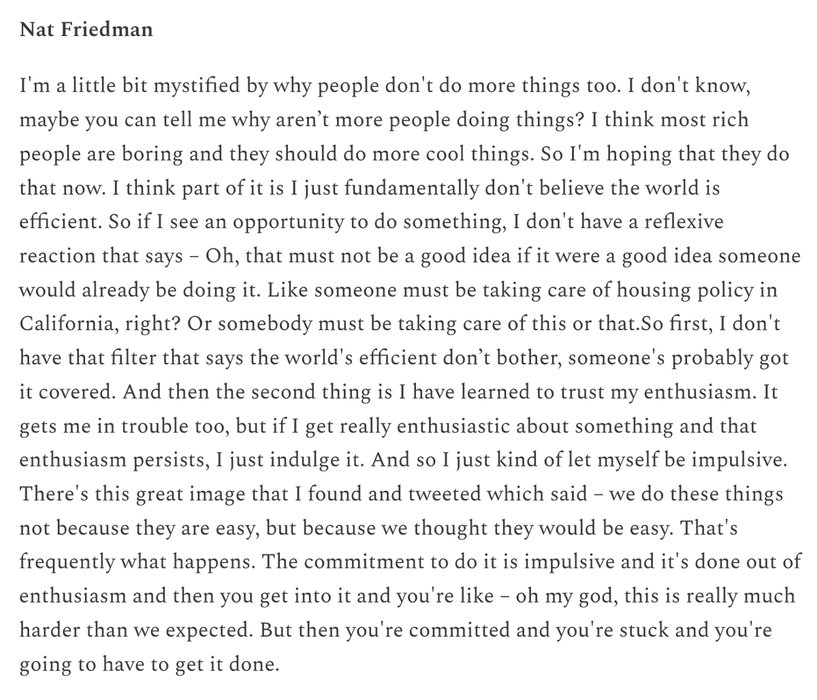
.@natfriedman: "I just fundamentally don't believe the world is efficient" https://t.co/M2mIH8ggbc
.@natfriedman: "I just fundamentally don't believe the world is efficient" https://t.co/M2mIH8ggbc

If right now you think I’m a horrible, marauding, free-market monster, you’re only half-right—I’m also a humanist who thinks there are better things for our children to do with their time. The quicker we eliminate the low-paying, repetitive, and menial jobs, the quicker our species can get to work on bigger issues like sustainability, being multipl
... See moreEntrepreneurs in the expertise business — when faced with a money problem — just make more money rather than looking for efficiencies. Entrepreneurial experts are notoriously terrible at efficiency and cost control.